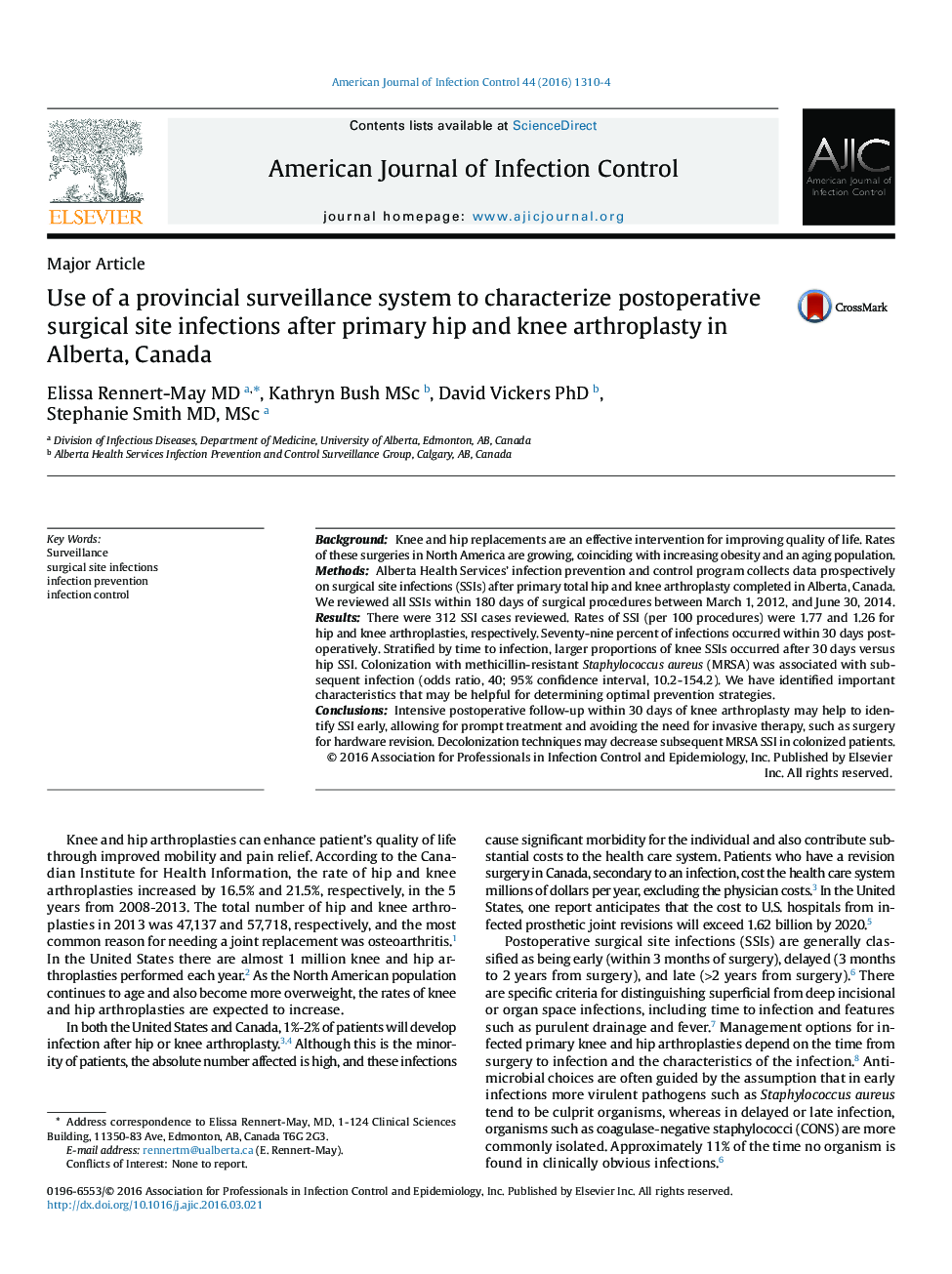| کد مقاله | کد نشریه | سال انتشار | مقاله انگلیسی | نسخه تمام متن |
|---|---|---|---|---|
| 5566597 | 1563451 | 2016 | 5 صفحه PDF | دانلود رایگان |
- Surveillance is used to discover pathogens of surgical site infection posthip and -knee arthroplasty.
- Infections after knee arthroplasty tend to occur later versus hip arthroplasty.
- Preoperative colonization with methicillin-resistant Staphylococcus aureus (MRSA) is more likely to cause an MRSA surgical site infection.
BackgroundKnee and hip replacements are an effective intervention for improving quality of life. Rates of these surgeries in North America are growing, coinciding with increasing obesity and an aging population.MethodsAlberta Health Services' infection prevention and control program collects data prospectively on surgical site infections (SSIs) after primary total hip and knee arthroplasty completed in Alberta, Canada. We reviewed all SSIs within 180 days of surgical procedures between March 1, 2012, and June 30, 2014.ResultsThere were 312 SSI cases reviewed. Rates of SSI (per 100 procedures) were 1.77 and 1.26 for hip and knee arthroplasties, respectively. Seventy-nine percent of infections occurred within 30 days postoperatively. Stratified by time to infection, larger proportions of knee SSIs occurred after 30 days versus hip SSI. Colonization with methicillin-resistant Staphylococcus aureus (MRSA) was associated with subsequent infection (odds ratio, 40; 95% confidence interval, 10.2-154.2). We have identified important characteristics that may be helpful for determining optimal prevention strategies.ConclusionsIntensive postoperative follow-up within 30 days of knee arthroplasty may help to identify SSI early, allowing for prompt treatment and avoiding the need for invasive therapy, such as surgery for hardware revision. Decolonization techniques may decrease subsequent MRSA SSI in colonized patients.
Journal: American Journal of Infection Control - Volume 44, Issue 11, 1 November 2016, Pages 1310-1314
